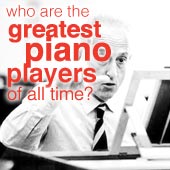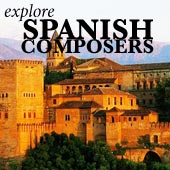A Reader's Experience of the Bayreuth Festspielhaus
Alan from the USA sent me this fascinating story about his trip to the Bayreuth Festival. It was so good I had to publish it here...
You asked for experiences concerning the "house that Wagner built" in Bayreuth. I was very fortunate enough as an engineering college student in my twenties to spend about 10 days in Bayreuth, while a friend and I toured Europe from the 'States "across the pond".
We both managed to get "rush" tickets outside the "official" ticket office to see what probably was one of the last great Ring's of the 20th century in 1967.
"Das Rheingold" of that season's offerings was the last opera re-staged by Wieland Wagner before his death, and it was truly 'magical'. More of that later.
I doubt in this day of the internet, it's still possible to do it, especially at reasonable prices. But folks who couldn't make the performances, were physically returning tickets by messenger to the theater. To my knowledge, none ever made it to the box office as the tickets were immediately "scooped up" by those "hangers on" like my friend and I, who bought these tickets on the sidewalk in front of the theater's box office.
That's how, without reservations, we managed to gain entry to one of the world's great Opera Houses and enjoy a spellbinding introduction Wagner's "Ring Des Niebelungen", never sitting in the same seats twice for the opera presentations.
What prompted me to respond was I recently purchased the Karl Boehm Bayreuth Ring recording from Amazon. Unbeknownst to my friend and I in the audience, all the performances were being recorded by Decca for later release!
During, I believe it was "Siegfried", I was fortunate enough to be seated next to the then conductor of the New Zealand Opera. He had spent the prior night in the Festspielhaus orchestra pit, and said it was the first (and probably only) time he'd ever seen a conductor instruct the orchestra to play as loud as they possibly could, so the sound would reach the audience!
Das Rheingold was very different from the other three Ring operas. Wieland Wagner had a central, circular, all black platform erected mid-stage. This combined with lighting effects that bordered on total darkness just bright enough to reveal costume colors, and little or no backdrops or staging, worked to "suspend" the entire performance in mid-air. You were virtually alone in the theater as all that was visible were the emergency "Exit" signs around the hall. One could not actually see the persons around you! It was as though one truly was watching the "play of the gods" floating in space!
Singing was spectacular: Nilsson, Adam, Windgassen... well, for students not terribly familiar at the time with Opera, we didn't realize we were watching a once in a lifetime event unfold before our eyes and ears.
Acoustical memories are faint, and although we had no knowledge of Deutsch, we were smart enough to get English translations of the libretti, and read them end-to-end for each opera before going to the theater. So, we pretty much knew what was happening on stage.
My recollections of the acoustics was that they were very good indeed! And, I had numerous experiences listening to classical music performances at Boston's Symphony Hall, one of the top 10 rated acoustical classical music venues in the world (according to world recognized and reknowned acoustician, Dr. Leo Beranek).
The music and the singing literally "washed" over us at every performance. And although intermissions were an hour each (to permit the singers some respite from their stentorian struggles!), the whole experience totally engulfed one from the opening note to the eventual expulsion of fans continuing to applaud over an hour after the conclusion of each performance!
It truly is an experience of a lifetime, and if you can manage a pilgrimage to Bayreuth, you will not be disappointed, even if it's only to hear one opera performed in the "House that Wagner built" (with a lot of help from King Ludwig II. It broke the treasury of Bavaria, and eventually resulted in his mysterious death).
Regrettably, we didn't actually realize it was being recorded until much later, when the recordings were issued. At the performances, we were led to believe the conductor, Karl Bohm, was recovering from a heart attack, but he certainly did recover and continued to conduct and record until his death a few days short of his 87th birthday, in 1981. I still have the programs and even the tickets stashed in my black disk recordings of the Solti Ring; and somewhere have the libretti translations kicking about.
A big thanks to Alan for sharing!
If you like my site, please click "Like"... thanks!


